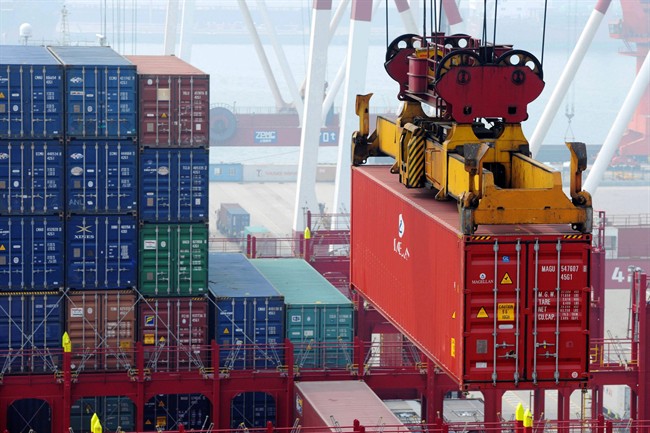
China’s September imports plunge 20.4 per cent in new sign of economic weakness
BEIJING, China – China’s imports fell by an unexpectedly wide margin in September in a new sign of weakness in the world’s second-largest economy.
Imports plunged 20.4 per cent from a year earlier to $145.2 billion, customs data showed Tuesday, worse than August’s 5.5 per cent decline and analysts’ expectations of about 15 per cent. Exports shrank 3.7 per cent, though that was an improvement from the previous month’s 13.8 per cent decline.
Weakness in trade has fueled doubts Beijing can hit its economic growth target this year of about 7 per cent.
Much of China’s slowdown over the past five years was self-imposed as the ruling Communist Party tries to steer the economy to more self-sustaining growth based on domestic consumption instead of exports and investment. But the past year’s unexpectedly deep decline has raised fears of politically dangerous job losses.
Beijing has cut interest rate five times since November and boosted spending on public works construction. Economic growth held steady in the quarter ending in July at 7 per cent. But that was the lowest rate since the 2008 global crisis and analysts said a Chinese stock market boom that pushed up activity in financial industries concealed weakness in other sectors.
“Import growth appears to have come in weaker than expected,” Julian Evans-Pritchard of Capital Economics said in a report.
“This suggests that domestic demand may have softened,” though the decline partly reflects lower prices for imports, he said. “Import volumes are holding up much better.”
IHS Global Insight economist Yating Xu noted that iron ore imports, a key input for manufacturing and construction, rose 1.7 per cent, compared with a 1 per cent contraction the previous month. Crude oil imports rose 1.4 per cent, compared with August’s 5.6 per cent decline.
China’s global trade surplus nearly doubled from a year earlier to a record-high $60.3 billion.
The country’s trade surplus with the European Union was $14 billion and that with the United States $26.5 billion.
Communist leaders want to reduce reliance on exports, but their plans call for trade to hold steady to protect millions of manufacturing jobs.
For the first nine months of the year, exports were down 1.9 per cent and imports by 15.3 per cent. That makes it unlikely Beijing can meet its trade growth target of about 6 per cent for the year.
The year-to-date decline in trade suggests “this sector is in recession,” Citigroup economist Minggao Shen said in a report. “However, there is a better chance that we’re probably near the trough level of growth and may expect better readings” in the current quarter.
Some analysts had suggested September trade would improve over August because that month’s activity was disrupted by an explosion in Tianjin, one of China’s busiest ports, and government-ordered factory shutdowns for a military parade in Beijing.
___
General Administration of Customs of China (in Chinese): www.customs.gov.cn
Join the Conversation!
Want to share your thoughts, add context, or connect with others in your community? Create a free account to comment on stories, ask questions, and join meaningful discussions on our new site.


















Leave a Reply
You must be logged in to post a comment.